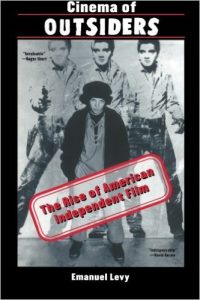Linklater on Why the Indie Film Revolution Faded: ‘Unless It’s Got Money All Over It, Nobody Gives a S—’

Richard Linklater enjoyed the rapturous ovation after the Cannes premiere of Nouvelle Vague, his look at Jean-Luc Godard and the French movement that changed the course of film history.
It was impossible not to be reminded of the indie revolution he had played a vital role in three decades ago, and it helped that the biggest rebel in that group, Tarantino, was leading the cheering.
“I’ve known Tarantino, like for 30 years. He’s one of my oldest film buddies, so to have him there was cool,” Linklater said after Nouvelle Vague premiered, earning great reviews.
Godard and his contemporaries Truffaut, Chabrol, Agnès Varda, Éric Rohmer and others felt they were riding a tide of change, thematically and stylistically.
The same thing was happening when Linklater came of age and other mavericks like Tarantino (“Pulp Fiction”), Soderbergh (“Sex, Lies, and Videotape”), Paul Thomas Anderson (“Boogie Nights”) and Van Sant (“My Own Private Idaho”) were upending conventions and playing with form in innovative ways.
My Book about Indie Cinema
“I remember having discussions with various filmmakers like, ‘something new in the air,’ and it was culturally —music, literature,” he says.
“It still happens, but the mainstream doesn’t fully embrace or acknowledge it, and I think that’s why it’s gone now,” Linklater says. “But there’s always newness. It was probably the last time it got recognized. You could be on the cover of Time. Those institutions, those gatekeepers were ‘alternative curious’ in the 1990s.”
Linklater gets a little quieter, gazing out at the sea. Then he starts up again.
“It’s kind of cool to have been aware of something while it was going on and to be a part of something at a certain time or place, but these things don’t last,” he says.
The cultural shifts have not kept Linklater from making his movies his way. Over the last 15 years, he’s directed 10 films, been nominated for Oscars (“Boyhood”) and tried the streaming world (“Hit Man”). It’s an impressive output for someone who seems so laid back.
“I get so annoyed with Richard,” says Zoey Deutch, who plays Jean Seberg in “Nouvelle Vague.” “I’m like, ‘Explain to me how you’re the least neurotic, most prolific director, like you’re not tortured by anything.’ He was done editing our movie within a couple months, and then filming his next one. Most directors are tortured by their movies and exhausted, and have to check themselves into clinics to sleep. He’s so calm.”
Godard — cocky, brainy, slightly dictatorial — seems like the polar opposite of Linklater. Though Linklater did extensively research the New Wave and the making of “Breathless,” joking he “now has a Master’s Degree” in the movement, he didn’t feel need to tailor his style to match that of his subject.
Though his movies have almost an improvisatory feel to them, Linklater believes in rehearsing extensively, shooting in actual locations, in order to get things right.
“For it to be loose, it’s got to first be tight,” he says. “That’s how I’ve worked for 36 years. Maybe it’s because I was a student athlete, but you don’t just show up and play the game. You’d get hurt. You practice, you work hard, and then you let it go and just play.
My movies are character-based. I want them to come to life, I want actors to give a lot, to be believable. But there’s another kind of movie that you don’t need that — where you just fit your actors into your shots.”
He shot his coming-of-age epic drama, the 2014 Oscar winning Boyhood, over 11 years so he could capture that film’s protagonist as he aged from a kid into college freshman in real time.
He’s already filmed a third of Merrily We Roll Along, Sondheim’s musical about three college friends whose relationship deteriorates as they deal with personal and professional setbacks over decades. Ben Platt, Paul Mescal and Beanie Feldstein are playing the trio. “It’s a crazy project, but it has a guiding backbone,” he says.
When Linklater first decided to make it, “Merrily We Roll Along” was a notorious theatrical flop. That’s changed with a recent Broadway revival, starring Jonathan Groff, Lindsay Mendez and Daniel Radcliffe, which was embraced by critics and audiences, even winning Tony Awards.
“Now people think it’s great on stage,” Linklater says. “But for a while, it was ‘that one doesn’t quite work.’ Everyone loves the score, but something about it is off. Either the actors are too young or too old. I thought that the way to fix that is to film it, and Sondheim agreed.”
Source: Variety











